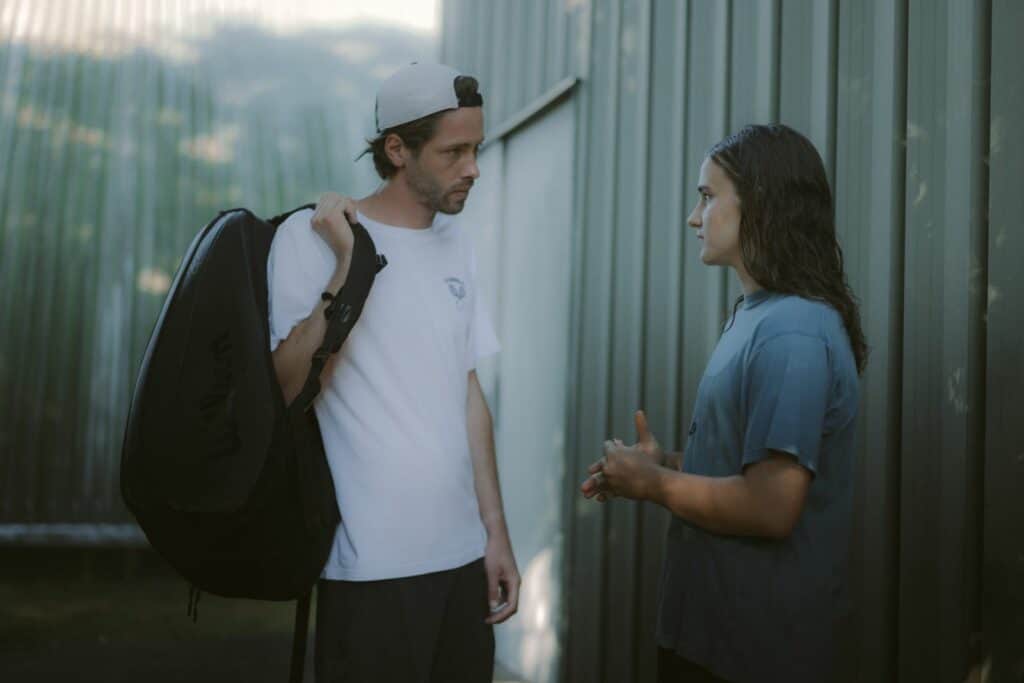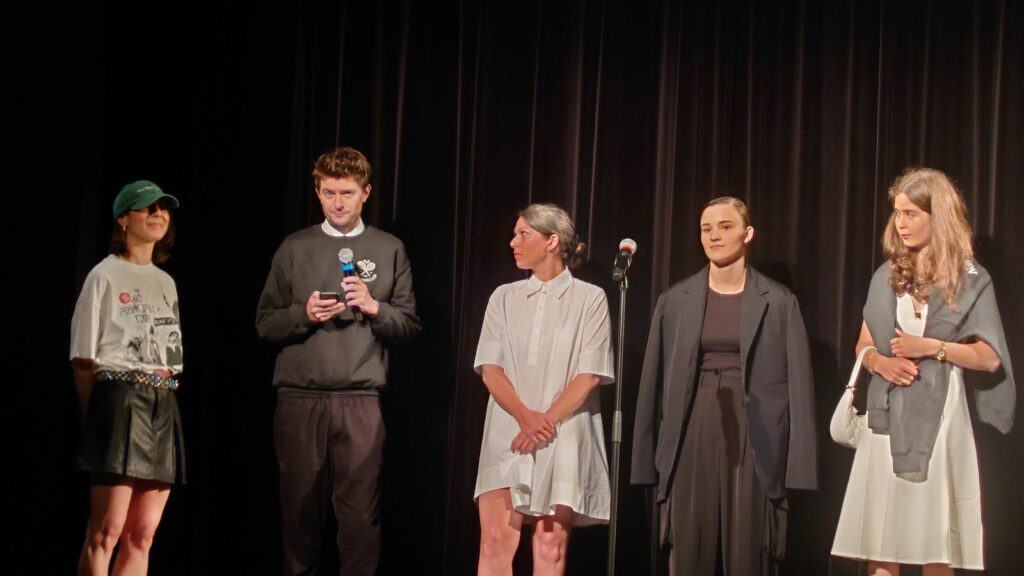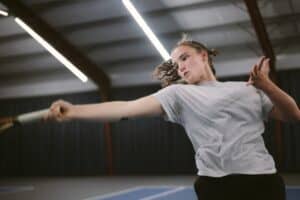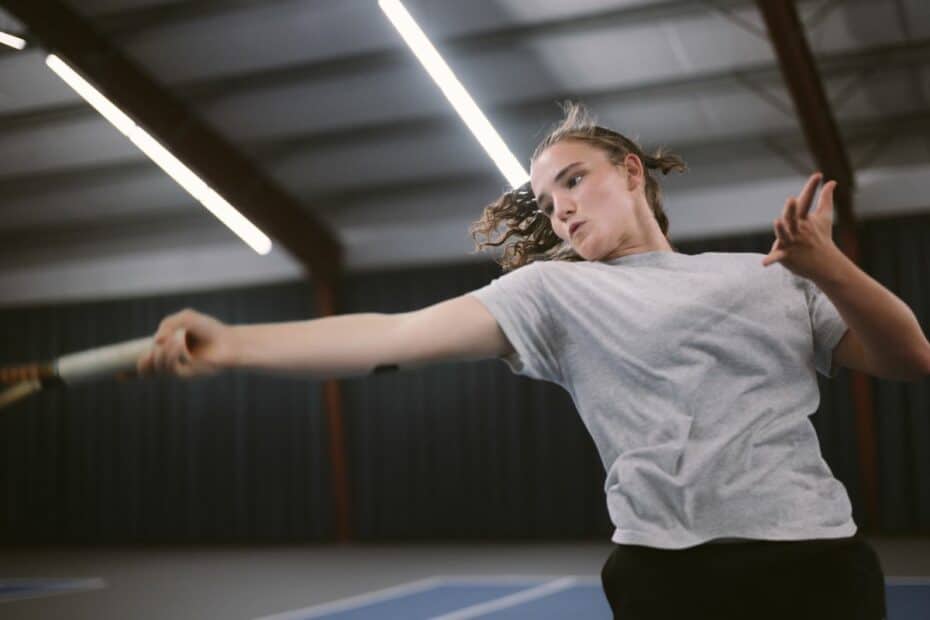Julie Keeps Quiet (Julie zwijgt) is the first feature by Belgian director Leonardo van Dijl. It had its world premiere in the Semaine de la Critique 1 at the 2024 Cannes Film Festival. As the star player at an elite tennis academy, Julie’s life revolves around the game she loves. When one of the players commits suicide, her coach, Jérémy, is investigated and suddenly suspended. All of the club’s players are encouraged to speak up, but Julie decides to keep quiet. She was the coach’s favourite player, and the relationship between them was a significant component in Julie’s life. What reasons could she have not to testify?
In most films that tackle this kind of topic, that would be the major question, and some big dark secrets would be divulged in the most obvious fashion. Thankfully, the director and his co-writer, Ruth Becquart, who also plays Julie’s mother, have something different in mind. Julie is determined to focus on her playing and shut out most other parts of her life. The reason why she won’t testify is multi-layered and entangled, and the film never looks for easy or obvious answers. Jérémy sends text messages to Jule, and on one occasion, they meet. Once again, the scene is not overly expositional, even if one comment that Jérémy says twice might give a clue to what transpired.

Julie Keeps Quiet – Ending not explained
Belgium has a rich cinematic heritage, with spectacular artists like André Delvaux and Harry Kümel, whose respective styles could be quite striking. In recent years, that manner of stylisation has yielded to a more realistic approach symbolised by the Dardenne brothers. It would be a lie to claim that I was cheering when I noticed their names among the producers. The film is shot on 35 mm by Nicolas Karakatsanis known for works like Bullhead (Rundskop 2011) and Bas Devos’ Hellhole (2019). The style is unobtrusive, with a few noticeable exceptions. It is not the style I typically cherish; however, the meticulous way in which Julie Keeps Quiet is conceived gradually won me over without the need for a tiebreak.

Julie is played by Tessa Van den Broeck, a real-life tennis player. She is pitch-perfect in the part from an early scene when she is “playing” without a ball all the way to the end. Julie is clearly the main focus of the film, and the other characters fade in comparison, which once again is a conscious choice on the filmmakers’ part. Another major component of the film’s success is the sparsely utilised music by Caroline Shaw.
Wovon man nicht sprechen kann, darüber muss man schweigen
The final scene (shot on 65mm film) is perfect in a film, with the rare quality of getting better as it progresses. Julie Keeps Quiet was one of the few highlights of this year’s Cannes Festival. That it is the best tennis film of the year goes without saying since there are no serious Challengers out there. The film is a Belgian-Swedish co-production, and it is an interesting coincidence that Flemish and Swedish both have a single word for “not talking ” or being quiet, zwijgt in Flemish and tiger in Swedish. 2
Julie Keeps Quiet received two partners’ awards. One was from the Gan Foundation Award for Distribution, and the other was the SACD Award.
When it comes to the Semaine section itself, it is worth noticing that while the two main sections inexplicably have screenings without any interpretation, in Miramar, all presentations and Q&As are expertly translated by Aurore Kahan.
Julie Keeps Quiet

Director: Leonardo van Dijl
Date Created: 2024-05-18 01:32
4
Pros
- Perfectly balanced
- Strong performances
Cons
- Unobtrusive cinematography

